Writing blog :) please talk to me Im bored as hell and want friends aaa, swear I don’t bite. 🌌 Poly(theist, amorous). In a QPR!
Don't wanna be here? Send us removal request.
Text
Bruce always had trouble raising his voice at people.
He had the words, all of them, his vocabulary was long and large and educated. But the words would get twisted up inside, curling and knotting in his throat until he could barely breathe, until he had to run, run far away, and let the words out in different ways. Usually through tears.
Until he adopted a little eight year old orphan.
Dick was everything Bruce wasn't. Loud and fun and rambunctious, he always knew what to say and how to say it. He always had the words. But sometimes those words got him in trouble.
Bruce’s heart was beating a mile a minute when he got the call from the school.
“Is Dick hurt? Is he alright?” He demanded, but the lady at the front desk merely ordered him to Dick’s classroom.
His son was sitting on the floor, completely at ease, unharmed, but there was a tightness to his shoulders, a shadow in his eyes.
Bruce knelt before his son, completely ignoring the teacher.
“What happened?” He asked quietly, brushing Dick’s hair from his face.
“I got angry.” Dick whispered, hands twisting in his lap. “She was saying things about my Mom, and Dad.” Dick’s voice was shaking. Bruce looked at the teacher.
She smiled pleasantly, shaking her head. “No, Mr. Wayne, I was merely discussing with the children the intricacies of lower class versus upper class, and how some acts done by upper classmen are viewed as charity work and shouldn’t be taken seriously-”
Bruce was standing before he knew what was going on.
And that was the day he learned how to raise his voice.
5K notes
·
View notes
Text
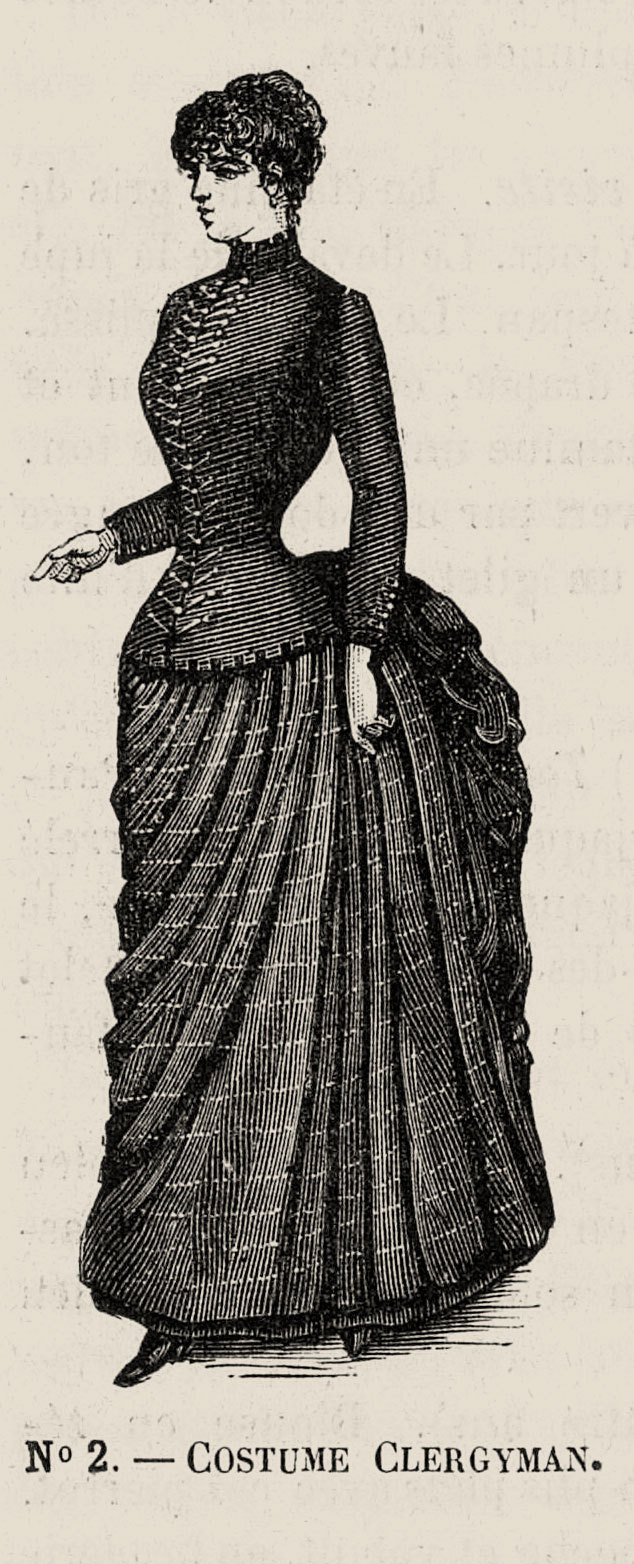
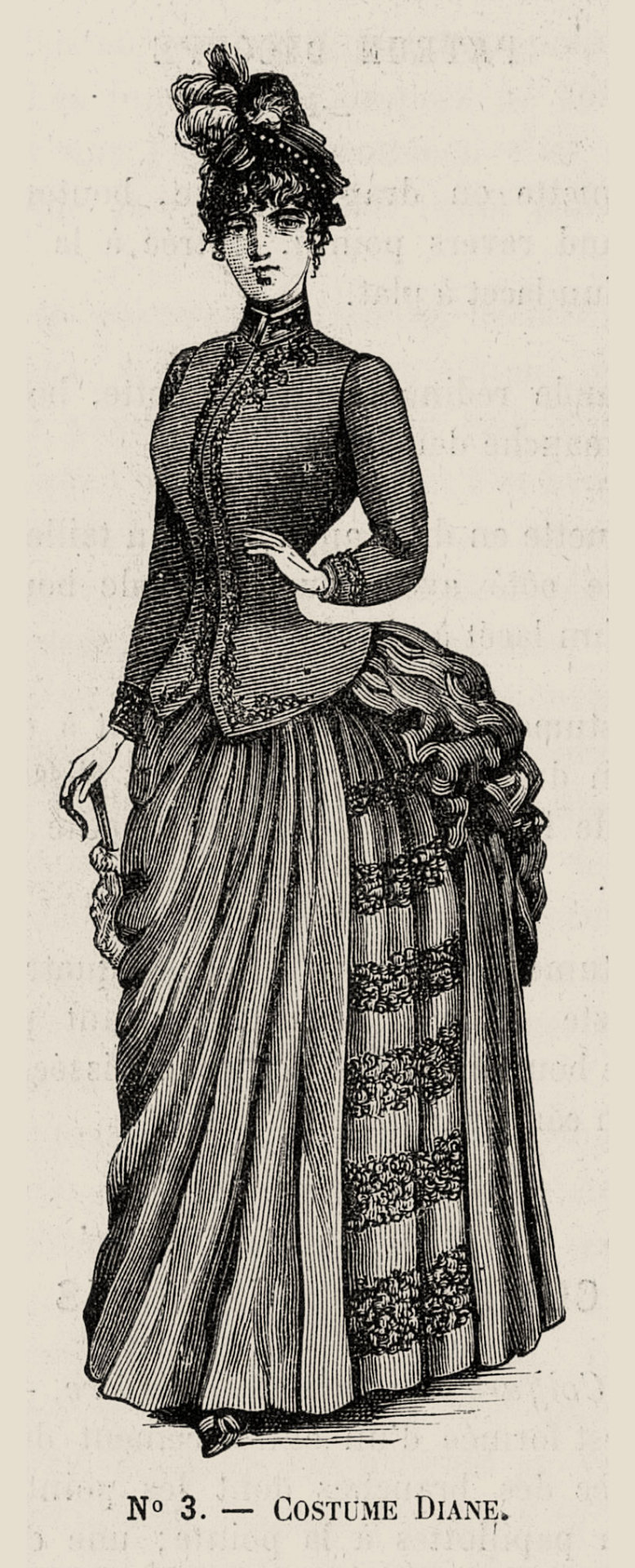
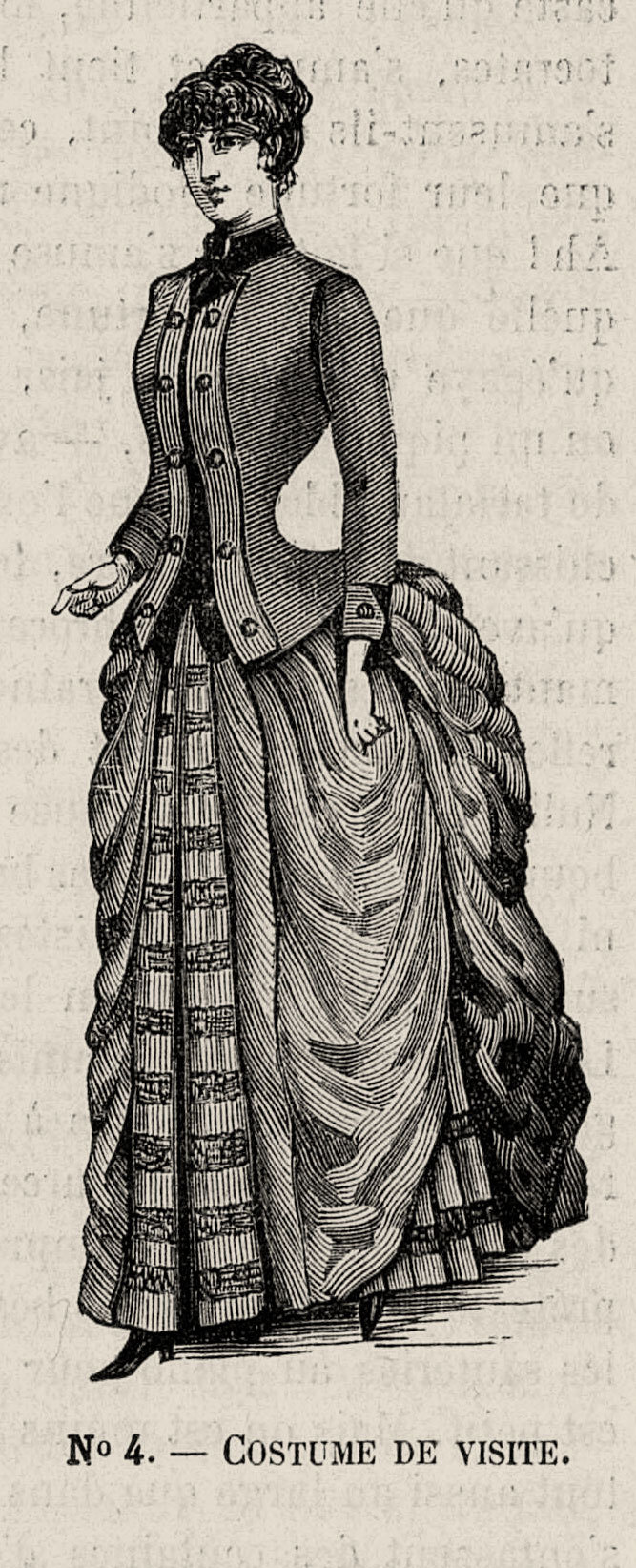
La Mode nationale, no. 7, 1 avril 1886, Paris. No. 2. Costume Clergyman. No. 3. Costume Diane. No. 4. Costume de visite. Bibliothèque nationale de France
No. 2. Costume Clergyman. Jupe de lainage vitraux bleu à filets rouges, drapée en biais sur le tablier, tombant en plis droits sur le côté, coquillant en pouf derrière. Là-dessus un jersey en laine bleue, lacé en aiguillettes par une tresse de mohair rouge.
No. 2. Clergyman suit. Blue stained glass woolen skirt with red threads, draped diagonally over the apron, falling in straight folds on the side, shell like a pouf behind. On top a blue wool jersey, laced in needles with a braid of red mohair.
—
No. 3. Costume Diane. En soie de sanglier fauve. La jupe montée à gros plis par devant, tombant en pouf derrière, fendue de côté sur un jupon barré d'astrakan naturel.
Le corsage en sanglier tricoté, brodé d'une fine guirlande en laine bourrue, d'un ton plus foncé. Capeline en paillasson beige, avec cordon de boules ambrées et panache de plumes fauves.
No. 3. Diana suit. In tawny boar silk. The skirt fitted with large pleats in the front, falling in a pouf at the back, slit on the side over a petticoat barred with natural astrakhan.
The bodice in knitted boar, embroidered with a fine garland of coarse wool, in a darker tone. Beige doormat capeline, with cord of amber balls and plume of fawn feathers.
—
No. 4. Costume de visite. En étamine gris de fer, ciselée de rayures à jour. Le devant de la jupe forme double pli Montespan. Le reste est plissé. Là-dessus une tunique drapée, ouverte devant et retroussée de côté en étamine unie, de même ton. Jersey en soie grise ouvert par une double rangée de boutons nacrés sur un gilet de velours d'une nuance plus soutenue.
No. 4. Visiting suit. In iron gray cheesecloth, chiselled with openwork stripes. The front of the skirt forms a Montespan double pleat. The rest is pleated. On top a draped tunic, open in front and rolled up at the side in plain cheesecloth, of the same tone. Gray silk jersey opened with a double row of pearly buttons on a velvet waistcoat of a more intense shade.
86 notes
·
View notes
Text
Apparently a lot of people get dialogue punctuation wrong despite having an otherwise solid grasp of grammar, possibly because they’re used to writing essays rather than prose. I don’t wanna be the asshole who complains about writing errors and then doesn’t offer to help, so here are the basics summarized as simply as I could manage on my phone (“dialogue tag” just refers to phrases like “he said,” “she whispered,” “they asked”):
“For most dialogue, use a comma after the sentence and don’t capitalize the next word after the quotation mark,” she said.
“But what if you’re using a question mark rather than a period?” they asked.
“When using a dialogue tag, you never capitalize the word after the quotation mark unless it’s a proper noun!” she snapped.
“When breaking up a single sentence with a dialogue tag,” she said, “use commas.”
“This is a single sentence,” she said. “Now, this is a second stand-alone sentence, so there’s no comma after ‘she said.’”
“There’s no dialogue tag after this sentence, so end it with a period rather than a comma.” She frowned, suddenly concerned that the entire post was as unasked for as it was sanctimonious.
123K notes
·
View notes
Text
I've already said that my number one piece of writing advice is to read.
But my number two piece of advice is this: be deliberate.
Honestly this would fix so many pieces of bad writing advice. Don't forbid people from doing something, tell them to be conscious and deliberate about it. This could help stop people from falling into common mistakes without limiting their creativity. Black and white imperatives may stop a few annoying beginner habits, but ultimately they will restrict artistic expression.
Instead of "don't use epithets": "Know the effect epithets have and be deliberate about using them." Because yes, beginners often misuse them, but they can be useful when a character's name isn't known or when you want to reduce them to a particular trait they have.
Instead of "don't use 'said'" or "just use 'said'": "Be deliberate about your use of dialogue tags." Because sometimes you'll want "said" which fades into the background nicely, but sometimes you will need a more descriptive alternative to convey what a character is doing.
Instead of "don't use passive voice": "Be deliberate about when you use passive voice." Because using it when it's not needed can detract from your writing, but sometimes it can be useful to change the emphasis of a sentence or to portray a particular state of mind.
Instead of blindly following or ignorantly neglecting the rules of writing, familiarize yourself with them and their consequences so you can choose when and if breaking them would serve what you're trying to get across.
Your writing is yours. Take control of it.
It probably sounds like I'm preaching to the choir here because most of my mutuals are already great writers. But I'm hoping this will make it to the right people.
23K notes
·
View notes
Text
20 Ways to Show Extreme Fear in Your Writing
As I dive into researching signs of fear for my horror WIP, I wanted to share some of the most compelling and visceral reactions I’ve come across. Whether you’re writing a chilling scene or crafting a character’s panic, these 20 signs of fear can help bring tension and realism to your story.
Physical Reactions
Hyperventilating — sucking in air but never feeling like it’s enough
Chest tightens — feels like a weight or hands pressing down
Limbs shaking violently, knees buckling
Complete loss of muscle control — collapsing or unable to stand
Cold sweat soaking through clothes
Heart hammering so hard they feel it in their throat or head
Tunnel vision — the world narrowing down to one terrifying focal point
Ringing in the ears or sudden deafness, like the world drops away
Dizziness / feeling faint / vision blurring
Dry mouth — unable to speak or even scream
Uncontrollable Behavior
Screaming / sobbing / gasping — involuntary vocal outbursts
Panic run — bolting without thinking, tripping over everything
Clawing at their own skin / chest / throat — like trying to escape their body
Begging / pleading out loud even if no one’s there
Repeating words or phrases — “No, no, no” / “This isn’t happening”
Hiding instinctively — diving under tables, closets, or corners
Desperate grabbing — reaching for someone, anything solid
Loss of bladder or bowel control (for extreme terror)
Total mental shutdown — frozen, slack-jawed, staring blankly
Memory blackout — later can’t recall what happened during the worst moment
12K notes
·
View notes
Text
sometimes you need dialogue tags and don't want to use the same four


181K notes
·
View notes
Text
How to use Em Dash (—) and Semi Colon ( ; )
Since the ai accusations are still being thrown around, here's how i personally like to use these GASP ai telltales. 🦄✨
Em Dashes (—)
To emphasize a shift / action / thought.
They're accusing us—actually accusing us—of using AI.
To add drama.
They dismissed our skills as AI—didn't even think twice, the dimwits—and believed they were onto something.
To insert a sudden thought. Surely they wouldn't do that to us—would they?
To interrupt someone's speech. "Hey, please don't say that. I honed my craft through years of blood and tears—" "Shut up, prompter."
To interrupt someone's thoughts / insert a sudden event.
We're going to get those kudos. We're going to get those reblogs—
A chronically online Steve commented, “it sounds like ai, idk.”
Semi Colons ( ; )
To join two closely related independent sentences / connect ideas.
Not only ChatGPT is capable of correct punctuation; who do you think it learned from in the first place?

Ultimate pro tip: use them whenever the fuck you want. You don't owe anyone your creative process. 🌈

15K notes
·
View notes
Text
writer brain is like “what if this story was a metaphor for grief”
no babes what if this story was finished first
2K notes
·
View notes
Text
When your Character...
Gets into: A Fight ⚜ ...Another Fight ⚜ ...Yet Another Fight
Hates Someone ⚜ Kisses Someone ⚜ Falls in Love
Calls Someone they Love ⚜ Dies / Cheats Death ⚜ Drowns
is...
A Ballerina ⚜ A Child ⚜ Interacting with a Child ⚜ A Cheerleader
A Cowboy ⚜ A Genius ⚜ A Lawyer ⚜ A Pirate ⚜ A Spy
A Wheelchair User ⚜ A Zombie ⚜ Beautiful ⚜ Dangerous ⚜ Drunk
Funny ⚜ In a Coma ⚜ In a Secret Society ⚜ Injured ⚜ Shy
needs...
A Magical Item ⚜ An Aphrodisiac ⚜ A Fictional Poison
A Coping Strategy ⚜ A Drink ⚜ A Medicinal Herb ⚜ A Mentor
Money ⚜ A Persuasion Tactic ⚜ A Quirk ⚜ To be Killed Off
To Become Likable ⚜ To Clean a Wound ⚜ To Self-Reflect
To Find the Right Word, but Can't ⚜ To Say No ⚜ To Swear
loves...
Astronomy ⚜ Baking ⚜ Cooking ⚜ Cocktails ⚜ Food ⚜ Oils
Dancing ⚜ Fashion ⚜ Gems ⚜ Herbal Remedies ⚜ Honey
Mushrooms ⚜ Mythology ⚜ Numbers ⚜ Perfumes
Roses ⚜ Sweets ⚜ To Argue ⚜ To Insult ⚜ To Kiss
To Make False Claims ⚜ Wine ⚜ Wine-Tasting ⚜ Yoga
has/experiences...
Allergies ⚜ Amnesia ⚜ Bereavement ⚜ Bites & Stings
Bruises ⚜ Caffeine ⚜ CO Poisoning ⚜ Color Blindness
Facial Hair ⚜ Fainting ⚜ Fevers ⚜ Food Allergies
Food Poisoning ⚜ Fractures ⚜ Frostbite ⚜ Hypothermia
Injuries ⚜ Jet Lag ⚜ Kidnapping ⚜ Manipulation ⚜ Mutism
Pain ⚜ Paranoia ⚜ Poisoning ⚜ More Pain & Violence
Scars ⚜ Trauma ⚜ Viruses ⚜ Wounds
[these are just quick references. more research may be needed to write your story...]
Writing Resources PDFs
26K notes
·
View notes
Text
Writing Description Notes:
Updated 9th September 2024 More writing tips, review tips & writing description notes
Facial Expressions
Masking Emotions
Smiles/Smirks/Grins
Eye Contact/Eye Movements
Blushing
Voice/Tone
Body Language/Idle Movement
Thoughts/Thinking/Focusing/Distracted
Silence
Memories
Happy/Content/Comforted
Love/Romance
Sadness/Crying/Hurt
Confidence/Determination/Hopeful
Surprised/Shocked
Guilt/Regret
Disgusted/Jealous
Uncertain/Doubtful/Worried
Anger/Rage
Laughter
Confused
Speechless/Tongue Tied
Fear/Terrified
Mental Pain
Physical Pain
Tired/Drowsy/Exhausted
Eating
Drinking
Warm/Hot
50K notes
·
View notes
Text
"what groceries u been into recently" is actually a great question, there's a bunch of good conversations inside it
43K notes
·
View notes
Text
Good characterization will always be my doom because I never want to write characters as OOC and I end up re-writing the whole fic a thousand times until I’m satisfied
Issue is I’m never satisfied
0 notes
Text

The Latin root of “emotion” means “move out;” the French, “stir up.” The natural emotional cycle is to get stirred up (feeling) and then move out (action).
-Fred Kofman, Conscious Business
#similarities I noticed#reading#conscious business#Fred kofman#books#inspiration#life advice#emotions#pain#feelings#managing emotions
0 notes
Text

Just sat with my WIP open on the big screen while I wasted time scrolling on the little screen for HOURS.
474 notes
·
View notes
Text
7 Reasons you might be procrastinating and how to solve them:
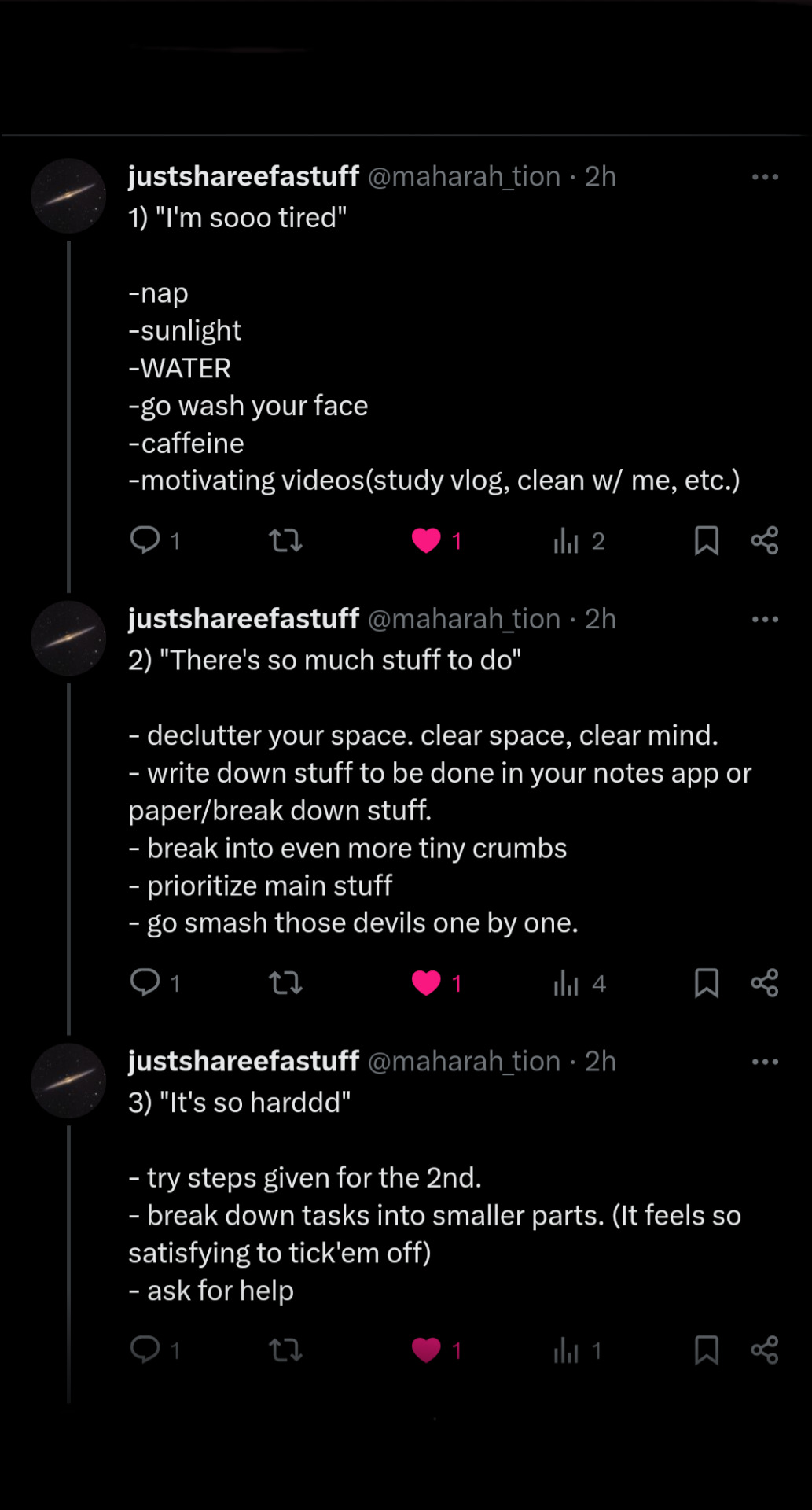
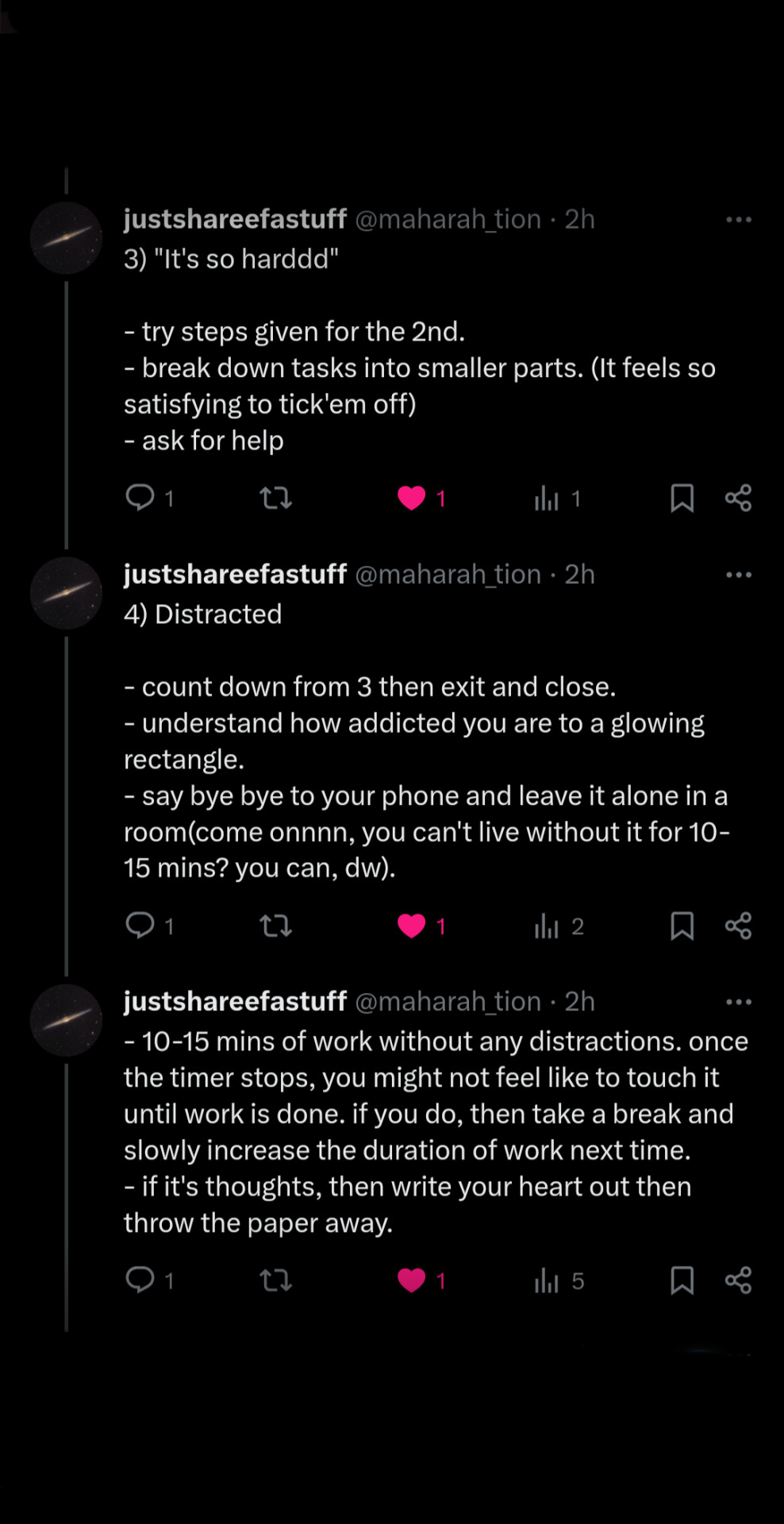

13K notes
·
View notes






